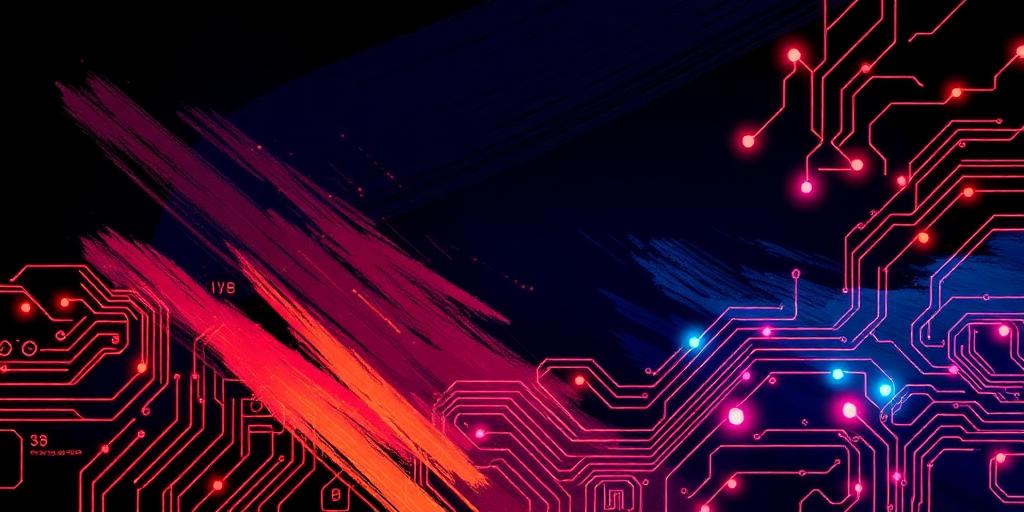The Intersection of AI and Creativity: A Deep Dive
Artificial Intelligence (AI) is rapidly transforming numerous industries, and the creative sector is no exception. As AI technology advances, it's becoming increasingly intertwined with how we generate, experience, and interact with art, music, writing, and other forms of creative expression. This article delves into the multifaceted intersection of AI and creativity, examining the current landscape, potential benefits, challenges, and future possibilities.
AI as a Creative Tool
At its core, AI serves as a powerful tool for augmenting human creativity. By automating repetitive tasks, generating novel ideas, and providing new perspectives, AI enables creators to push the boundaries of their imagination. Here are some examples of AI's role as a creative tool:
- AI-Powered Music Composition: AI algorithms can analyze vast datasets of musical pieces to generate original compositions in various styles. Tools like Amper Music and Jukebox allow users to customize parameters such as tempo, key, and instrumentation to create unique musical scores.
- AI-Assisted Visual Art: AI can generate stunning visual art from text prompts or image inputs. Platforms like DALL-E 2, Midjourney, and Stable Diffusion empower artists to create intricate and imaginative visuals, opening up new avenues for digital art and design.
- AI in Writing and Content Creation: AI writing assistants such as GPT-3 and Grammarly can assist writers with generating content, improving grammar, and enhancing writing style. These tools are valuable for content creation, copywriting, and even creative writing.
Benefits of AI in the Creative Process
Integrating AI into the creative process offers several notable benefits:
- Enhanced Productivity: AI streamlines repetitive tasks, freeing up creators to focus on higher-level creative endeavors. This leads to increased productivity and efficiency.
- Inspiration and Idea Generation: AI can generate novel ideas and provide fresh perspectives, sparking inspiration for creative projects.
- Democratization of Creativity: AI tools make creative expression more accessible to individuals with varying skill levels. Novices can leverage AI to produce professional-quality art, music, and writing.
- Experimentation and Innovation: AI facilitates experimentation by allowing creators to rapidly prototype and iterate on ideas, leading to innovation and the discovery of new creative forms.
Challenges and Considerations
While AI offers immense potential, it also presents several challenges and considerations:
- Ethical Concerns: AI-generated content raises ethical questions regarding authorship, copyright, and originality. Determining the legal and moral rights of AI-created works is an ongoing challenge.
- Bias and Representation: AI algorithms are trained on data, and if the data reflects existing biases, the AI-generated content may perpetuate those biases. Ensuring fair and representative AI systems is crucial.
- Job Displacement: The automation of creative tasks may lead to concerns about job displacement for artists, musicians, writers, and other creative professionals. Adapting to the changing landscape and acquiring new skills will be essential.
- Authenticity and Human Connection: Some argue that AI-generated art lacks the emotional depth and human connection found in works created by human artists. Maintaining authenticity and emotional resonance in AI-driven creativity is an important consideration.
The Future of AI and Creativity
The future of AI and creativity is poised for exciting developments. As AI technology continues to evolve, we can expect to see:
- More Sophisticated AI Tools: AI tools will become more sophisticated, offering greater control and customization for creators.
- Seamless Integration: AI will be seamlessly integrated into creative workflows, becoming an indispensable part of the creative process.
- New Forms of Art: AI will inspire new forms of art and creative expression, pushing the boundaries of what is possible.
- Human-AI Collaboration: Collaboration between humans and AI will become increasingly common, leveraging the strengths of both to create extraordinary works.
In conclusion, the intersection of AI and creativity presents both opportunities and challenges. By embracing AI as a tool, addressing ethical concerns, and fostering collaboration, we can unlock the full potential of AI to enhance human creativity and shape the future of art, music, writing, and more.









